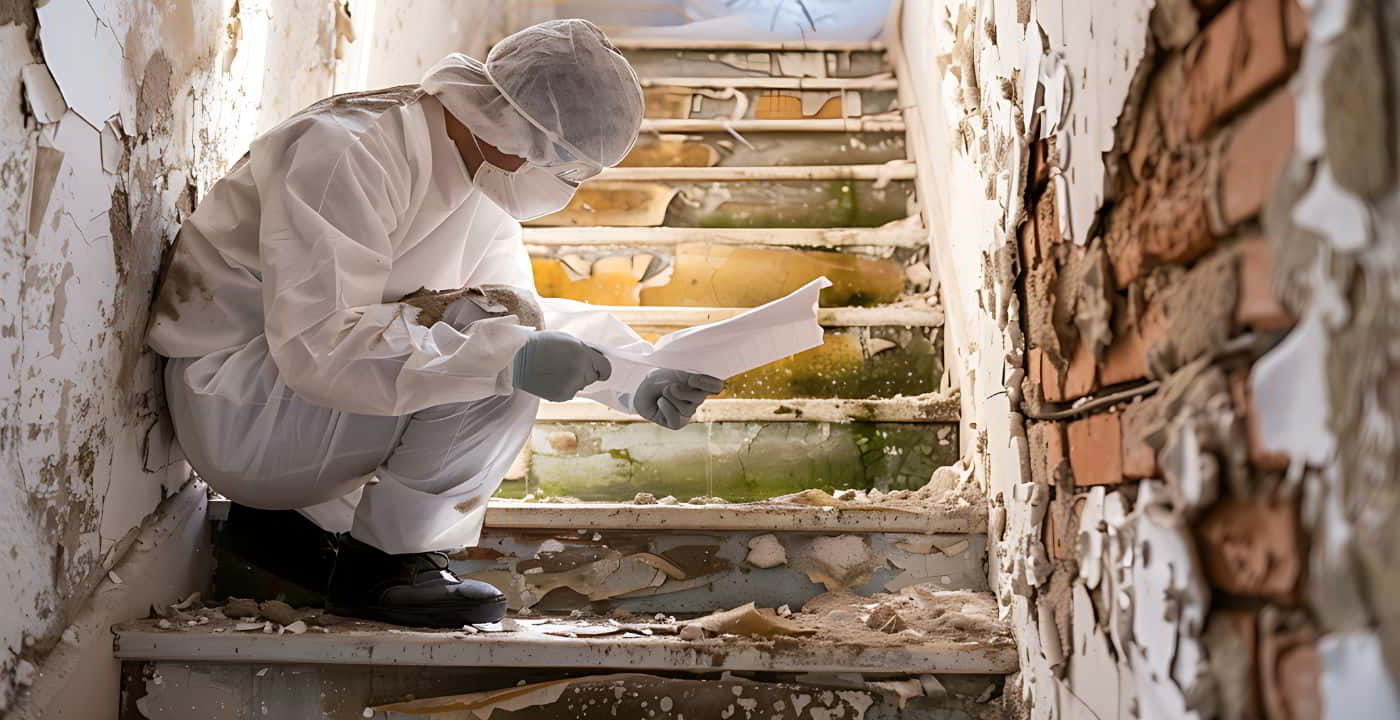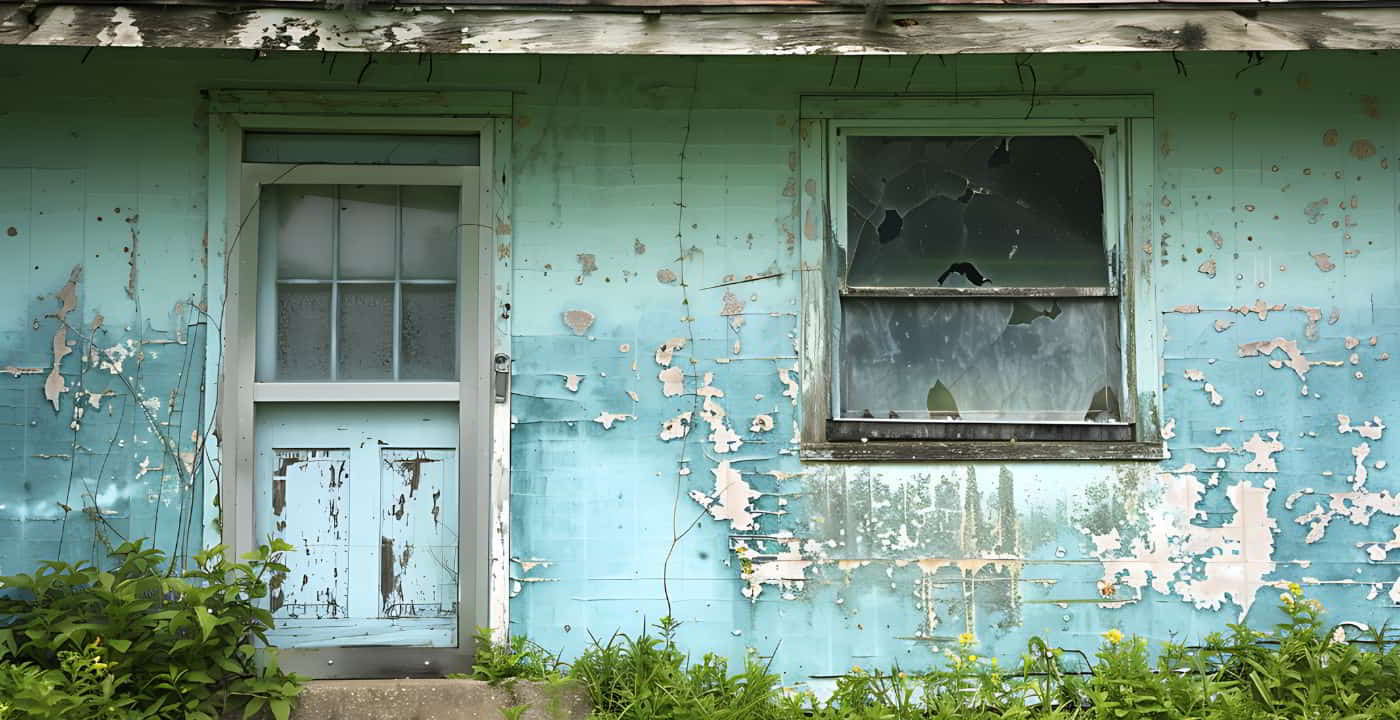Mold is a common concern for homeowners in Massachusetts and can prove to be a tricky hurdle to overcome when pursuing the perfect home sale.
Mold is a worthy opponent, capable of dealing you a bad hand from health risks to property devaluation, but it can always beaten.
With our expert knowledge below, you will soon see that selling a house with mold is not only possible but also straightforward with the right steps in place!
Key Notes
- It is legal to sell a house with mold in Massachusetts.
- A seller is only obliged by state law to disclose mold if the buyer directly asks about it.
- Sellers should keep reports and records of mold remediation efforts.
- Mold remediation can cost thousands of dollars, so selling a moldy home as-is to cash home buyers is a solid alternative.
Understanding Mold
To understand how to get the best out of a situation, you must first understand the nature of the situation itself.
Mold is a fungus that is omnipresent in nature and therefore also highly common in our homes. It grows both indoors and outdoors, and the essential elements of mold growth are excess moisture and oxygen.
Mold growth can occur at any time but it thrives particularly in spring and summer due to warm and humid conditions that favor the spread of fungi.
Types:
- Allergenic – common, mild mold spores that don’t generally affect humans apart from the odd allergic reaction or flare-up of asthma symptoms.
- Pathogenic – mold spores which are capable of causing severe illness if inhaled.
- Toxigenic – as the name suggests, mold spores which produce toxins, harmful to both people and animals.
Causes:
- Water leaks
- Water damage
- Poor ventilation
- High humidity
Common Areas Affected by Mold:
- Bathroom
- Roof
- Attic
- Walls
- Ceilings
- Basement
- Crawl spaces
- Piping
Risks:
- Worsening of respiratory Issues such as asthma
- Lung damage due to long-term exposure
- Allergies such as itching, sneezing, headaches and congestion
- Increased risk of infection to infants, elderly, and immunocompromised individuals
- Structural integrity of the property is affected due to rotting caused by mold
Is it Legal to Sell a House with Mold?

Yes, it is legal to sell a house with mold in Massachusetts.
Massachusetts state law follows the caveat emptor property law rule, which means “buyer beware.”
This rule favors the seller and places the burden of investigation on the buyer, who must ask the necessary questions and conduct the necessary inspections before finalizing a purchase. The consequence of this rule is that a seller is not legally required to disclose anything other than what is expressly stipulated in Massachusetts law.
Massachusetts law only requires a property seller to disclose the existence of lead paint and the presence of a septic system. However, if a prospective buyer does his homework and asks you direct questions about the presence of mold, you are bound by law to answer truthfully.
Mold Disclosure Requirements
In the event that a buyer has done his due diligence, conducted a property inspection, and questions you about mold, Massachusetts law requires the following in terms of disclosure:
- Fully disclose details of any known defects, including mold, to the buyer.
- Keep and provide a record of documentation related to any previous mold inspections or mold remediations.
- If a seller claims to have resolved mold issues prior to the sale, they must be able to provide evidence in the form of reports, records, and invoices demonstrating a proper remedy for the situation.
- A buyer who has raised a valid query regarding mold is entitled to request relevant written disclosures from you during sale negotiations to protect their purchase.
Does Mold Devalue a Home?
Yes.
While it is entirely legal to sell a home with mold, it is also entirely probable that the presence of mold will lower your selling price due to the previously mentioned health and structural integrity risks as well as remediation costs to keep the problem at bay.
Mold Impact on Home Value:
- A study showed that up to 50% of prospective buyers revoke their interest upon learning about a mold issue, even if it has been previously remediated, due to the recurring nature of mold growth.
- A decrease of 20% to 37% in home resale value. The bigger the mold issue, the greater the decrease in value.
- By logic, if up to 50% of prospective buyers walk away from sale negotiations, your home could also arguably spend up to 50% longer on the market.
Preparing a House with Mold for Sale

Identify the Source and Address the Issue
If mold growth were an equation, excess moisture plus poor ventilation would be the formula.
Fixing water leaks, improving ventilation, and reducing humidity levels are the basics of mold prevention. Ensuring these issues are addressed can prevent future mold growth in mild cases.
Professional Mold Inspection
If you are no longer in denial about your mold problem and would prefer to sell your home at the highest possible price, hire your own mold expert before a prospective buyer beats you to it.
A licensed mold inspector can assess the extent of the problem and provide you with an outline of necessary remediation. DIY mold inspections could lead to missteps and an ineffective remediation plan.
Remediation
Mold remediation is the removal, cleaning, and disinfecting of mold-infested areas.
As mentioned earlier, sellers can attempt to remedy mild cases by fixing leaks, improving ventilation, and purchasing dehumidifiers.
For large-scale mold infestation, we recommend using professional mold remediation services to ensure a thorough process and zero risk of recurrence. The benefit of going the formal route is that you can request records and reports proving successful remediation, which can be helpful in persuading prospective buyers to finalize a deal.
In 2024, homeowners will pay an average of $2,230 in mold remediation costs, but this amount can be considerably higher depending on the extent of the problem and the costs to repair structural integrity issues caused by mold rotting.
Selling Options for Moldy Homes
Traditional Sale or FSBO
If you are intent on sticking to the traditional sale route, either FSBO (for sale by owner) or through the services of a real estate agent, we would strongly advise you to place mold remediation at the top of your priorities list.
Ensure transparency and necessary disclosure are maintained throughout the sale process to allow prospective buyers to make informed decisions.
Be prepared to settle for a lower sale price due to the broad perception that a house with mold issues once will always have mold issues in the future. Mold, by nature, is recurrent.
Sell House As-Is to Cash Home Buyers
One category of buyer who won’t flinch at the prospect of purchasing a home with mold is cash home buyers.
Cash home buyers specialize in purchasing homes in an as-is condition. Unlike traditional buyers, they favor properties with issues like mold, fire, or water damage, which supports their fix-and-flip business model.
Cash home buyers take on the obligation of handling mold remediation themselves, making the selling process that much simpler for you.
Frequently Asked Questions
How do I manage a mold problem?
Controlling moisture is the best method of managing mold growth. EPA provides comprehensive mold control resources.
How common are mold issues in Massachusetts?
Mold is a type of fungi that occurs naturally and can be found almost anywhere in the world as long as there is moisture in the air. However, Massachusetts is relatively low on the list of moldy states, as the climate in southwestern states like California, Ohio, and Texas has been proven to be most conducive to mold growth.
Conclusion
Selling a mold-infested home in Massachusetts presents challenges but is far from impossible.
While you may face buyer scrutiny and tough negotiations, you have options. Whether you choose to tackle the mold issue head-on or look at alternative sale routes, the key lies in understanding your obligations, maintaining transparency, and selecting the right selling strategy.
If you’re looking to sell your mold-affected home quickly and avoid the stress of dealing with remediation, contact us today. We can provide a fair offer within 24 hours, allowing you to move forward without the stress of complex mold issues.





